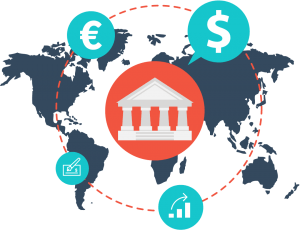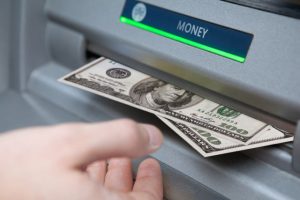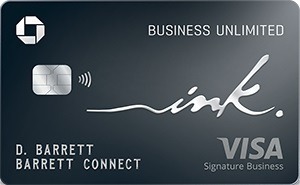 At one point or another, everyone has come to a point where they were hit with an excessive bank fee such as ATM surcharges or the monthly maintenance fee. Most of us can’t help but complain that overdraft fees reign over those excessive bank charges.
At one point or another, everyone has come to a point where they were hit with an excessive bank fee such as ATM surcharges or the monthly maintenance fee. Most of us can’t help but complain that overdraft fees reign over those excessive bank charges.
If you’re not cautious, the fees add up fast and they are expensive to keep up with. Instead of having your money wasted away in these fees, take the necessary measures to avoid them all together. Below are some great tips to know about the ways you can avoid those excessive bank charges!
Maintenance Fees
 Starting off with the easier way to avoid the bank fees, is to take care of that monthly maintenance fee. This goes hand in hand with choosing a proper bank account that you can manage and that has low or no maintenance fees. But if you don’t want to go through the hassle of changing your current account entirely, find out if you are able to waive it.
Starting off with the easier way to avoid the bank fees, is to take care of that monthly maintenance fee. This goes hand in hand with choosing a proper bank account that you can manage and that has low or no maintenance fees. But if you don’t want to go through the hassle of changing your current account entirely, find out if you are able to waive it.
Free banking may be more easily attainable than you think. A lot of fee waivers are often straightforward so as long as you meet the necessary requirements (usually a minimum balance or a form a direct deposit) then you won’t be charge any maintenance fees.
Direct Deposit
 While we are on the topic of a direct deposit, this is also another easy way to avoid those excessive fees. A direct deposit is a paycheck, pension, Social Security, or any other form of income is automatically deposited into your checking account.
While we are on the topic of a direct deposit, this is also another easy way to avoid those excessive fees. A direct deposit is a paycheck, pension, Social Security, or any other form of income is automatically deposited into your checking account.
This is another great way to consider avoiding those fees as you also enjoy the convenience of receiving your funds faster without any unnecessary ATM or money transfer fees. Although not all of us have the option to a direct deposit, you can make a “mock direct deposit” with a third party money transferring app such as PayPal.
Just have those funds transferred to your checking account and your bank may considered them as a direct deposit. However, you have to consider the amount transferred and if your bank requires a specific amount in those direct deposits.
ATM Fees
 One of the easiest avoidable fees are ATM surcharges. Let’s face it, many of us hate the idea of having to pay a fee just to withdraw our own funds from an ATM. Honestly, the only way to avoid them is to use ATMs that are affiliated or owned by your bank.
One of the easiest avoidable fees are ATM surcharges. Let’s face it, many of us hate the idea of having to pay a fee just to withdraw our own funds from an ATM. Honestly, the only way to avoid them is to use ATMs that are affiliated or owned by your bank.
Those with accounts from large national banks may be at a disadvantage as they are often more strict about using their own ATMs for deposits and withdrawals but there are also more of there affiliated ATMs available. Using your bank locator online or on a mobile app will help you find a plethora of free ATMs. You won’t have to pay any foreign ATM fees or any ATM service charges.
Online Banking and eStatements
 Try to opt for online banking and eStatements when opening a new bank account. Banks often charges a small fee for customers to receive paper statements. You have access to both the online and paper statement anyway so why not eliminate that unnecessary paper statement fee.
Try to opt for online banking and eStatements when opening a new bank account. Banks often charges a small fee for customers to receive paper statements. You have access to both the online and paper statement anyway so why not eliminate that unnecessary paper statement fee.
Sure, it might only be a dollar or two, but those fees add up quickly without us realizing it. Save those few extra bucks and opt for online statements. And if you ever need a physical copy, you can print it yourself at home.
Adding Multiple Accounts and Services
 Linking your accounts may help in waiving any other fees. For example, a lot of bank maintenance fee waivers require a combine minimum balance on your accounts.
Linking your accounts may help in waiving any other fees. For example, a lot of bank maintenance fee waivers require a combine minimum balance on your accounts.
If you are able to link multiple accounts, your balances in each account is considered as one total balance and if it reaches a certain threshold, you may be able to avoid that inconvenient monthly maintenance fee.
Student Checking
 If you are able to, try to opt for a student checking account. Many banks offer students a free checking account if they are around the a certain age range and show proof that they are enrolled in an academic institution.
If you are able to, try to opt for a student checking account. Many banks offer students a free checking account if they are around the a certain age range and show proof that they are enrolled in an academic institution.
The age limits vary depending on the bank, but are usually cut off around the ages of 23 and 24 and the minimum age is usually around 17. Students will be able to enjoy no monthly maintenance fees but don’t forget to ask your bank about any other service fees. Just remember that the account is no longer a student checking account if you go over the age cut off.
Often times, the account will turn into a regular checking account. Chase is currently having a $50 Student Checking Promotion for those qualified individuals who are looking to open an account. Since we are trying to find ways to avoid wasting money, why not earn some with Chase!
 • Enjoy $125 as a new Chase checking customer when you open a Chase College CheckingSM account and complete 10 qualifying transactions within 60 days of coupon enrollment. • $0 Monthly Service Fee while in school up to the expected graduation date provided at account opening (five years maximum) for students 17-24 years old. • Wire funds internationally using the Chase Mobile® app or chase.com. Send money to recipients around the world with multiple currency options. Fees apply. • Keep track of your money with confidence and control in the Chase Mobile® app. The Chase Mobile app helps you bank securely and conveniently from anywhere. • With Zelle®, you can send and receive money with people and businesses you know and trust who have an eligible account at a participating U.S. bank. • With Fraud Monitoring, Chase may notify you of unusual debit card purchases and with Zero Liability Protection you won't be held responsible for unauthorized debit card purchases when reported promptly. • JPMorgan Chase Bank, N.A. Member FDIC *With Chase Overdraft AssistSM, we won’t charge an Overdraft Fee if you’re overdrawn by $50 or less at the end of the business day OR if you’re overdrawn by more than $50 and you bring your account balance to overdrawn by $50 or less at the end of the next business day (you have until 11 PM ET (8 PM PT) to make a deposit or transfer). Chase Overdraft Assist does not require enrollment and comes with eligible Chase checking accounts. |
Excessive Transactions
 Excessive transactions are usually defines are excess withdrawals or transfers on the account. Many accounts limit how many transfers and withdrawals you can initiate and if you go over that set limit a fee will be assessed.
Excessive transactions are usually defines are excess withdrawals or transfers on the account. Many accounts limit how many transfers and withdrawals you can initiate and if you go over that set limit a fee will be assessed.
Banks often charge for excessive activity on savings account, so if you plan to spend money on those accounts, plan ahead and transfer those funds in larger amounts. Savings accounts are the meant for money to be remained on deposit for longer periods of time. If you need to make any type of transaction, use your checking account.
Money Transfer Fees
 A fee is often assessed if you need to send or receive money through your bank. Although it is fast and easy to send money through a wire transfer, the fee is often on the higher end ranging from $20-$35.
A fee is often assessed if you need to send or receive money through your bank. Although it is fast and easy to send money through a wire transfer, the fee is often on the higher end ranging from $20-$35.
Find other ways to send money such as an Automated Clearing House (ACH) Transfer or through third party apps such as Venmo, PayPal, or ChasePay, etc. There are many other options to avoid the bank’s money transfer fee. The downside is that it may not be as immediate as a wire transfer as it may take a few days to actually go through. But in the end, it may be worth if you want to save the extra $20.
Early Termination Fees
 Banks often charge an account closing fee of around $25 or so if your close an account within a certain time frame. Most accounts require a minimum 6 to 9 months of keeping the account open unless you are lucky enough to find one that does not have an early termination fee.
Banks often charge an account closing fee of around $25 or so if your close an account within a certain time frame. Most accounts require a minimum 6 to 9 months of keeping the account open unless you are lucky enough to find one that does not have an early termination fee.
As long as you are committed to keeping the account that you have opened, you shouldn’t worry about any early termination fees.
Insufficient Funds and Overdraft Fees
 Overdraft fees are notorious for the fact that the basically eat up our bank account funds when your balance is low. When discussing about bank fees, we are really thinking about those expensive overdraft fees. You can opt out of overdraft fees, but there is a small setback of this policy.
Overdraft fees are notorious for the fact that the basically eat up our bank account funds when your balance is low. When discussing about bank fees, we are really thinking about those expensive overdraft fees. You can opt out of overdraft fees, but there is a small setback of this policy.
Overdraft protection is what banks usually offer, but that only protects you from using your debit card too much. If you have set up any automatic payments, then the overdraft protection isn’t much help. Overdraft protection works in the way that if you do not have the funds to pay for something, the bank will “loan” you the amount you need.
But in return, you will have to pay a fee that often range around $35. So if you have the option to, try to opt out of Overdraft Protection. That way if you purchase something that costs more than what you have in the account, the transaction will be denied but you won’t have to face any expensive fees. Keep in mind that these is only effective for debit card transactions, so if you have set up any automatic payments, the money will be pulled from the account regardless of the amount and a fee will be applicable if the account is negative.
 | BMO Bank Checking: Open a new BMO Smart Money Checking Account and get a $400 cash bonus* when you have a total of at least $4,000 in qualifying direct deposits within the first 90 days. Learn More---BMO Checking Review *Conditions Apply. Accounts are subject to approval and available in the U.S. by BMO Bank N.A. Member FDIC. $4,000 in qualifying direct deposits within 90 days of account opening. |
 | Chase Ink Business Unlimited® Credit Card: New cardholders can enjoy a welcome offer of $750 bonus cash back after you spend $6,000 on purchases in the first 3 months from account opening. Click here to learn how to apply--- Review |
Bottom Line:
These are just some of the ways that you can avoid those excessive bank charges. Rather than it being tips, think of it as a word of caution. There is a way to avoid those fees, you just need to find the necessary requirements to do so. Take into consideration of the type of bank account are opening and remember that free checking accounts do exist.
Being wise with your finances may help you save better and grow your earnings, so don’t hesitate to find out about all of your bank’s options in opening and managing your account. Check out our other banking reviews such as finding the Best Ways to Manage Your Checking Account, information about ACH vs Wire Transfers, or our extensive list on the Best Bank Bonuses available!
 The Chase Sapphire Preferred® Card offers 75,000 bonus points after you spend $5,000 on purchases in the first 3 months from account opening. You'll earn: • 5x on travel purchased through Chase TravelSM • 3x on dining, select streaming services and online groceries • 2x on all other travel purchases • 1x on all other purchases • $50 Annual Chase Travel Hotel Credit • Get complimentary access to DashPass which unlocks $0 delivery fees and lower service fees for a minimum of one year when you activate by December 31, 2027. Get 25% more value when you redeem for airfare, hotels, car rentals and cruises through Chase TravelSM This card carries a $95 annual fee. |
